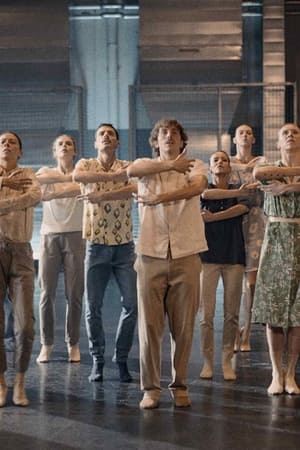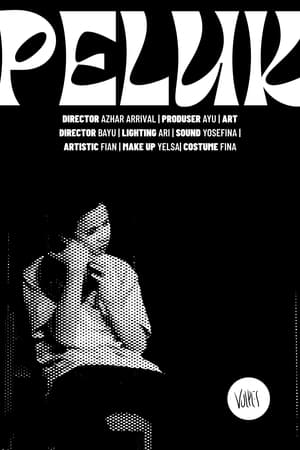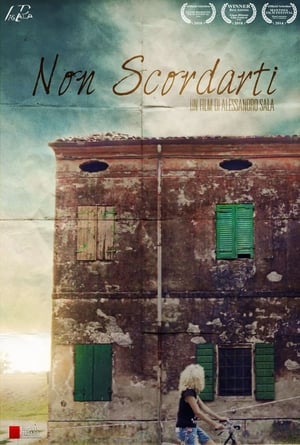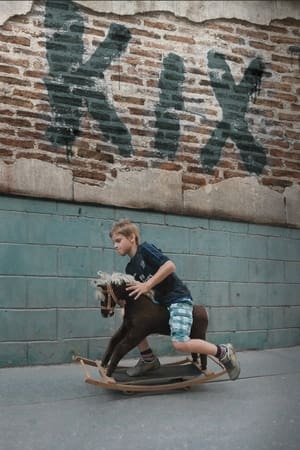
Pick up the Wind(2021)
A short film following Anthony, a young child from the small, rural town of San Antonio de los Baños, Cuba. We see him in different moments of his daily life as he interacts with different forms of environmental, familial, and social influences. While Anthony displays contradictory traits of creativity, destruction, rigidity, and tenderness as he interacts with his external and internal worlds, we see a story built from the the multidimensionality of Anthony's layered personality as a young man.

Movie: Pick up the Wind
Top 4 Billed Cast
Self
Self
Self
Self
Video Trailer Pick up the Wind
Recommendations Movies
Pretty Bloody: The Women of Horror(en)
Pretty Bloody: The Women of Horror is a television documentary film that premiered on the Canadian cable network Space on February 25, 2009. The hour-long documentary examines the experiences, motivations and impact of the increasing number of women engaged in horror fiction, with producers Donna Davies and Kimberlee McTaggart of Canada's Sorcery Films interviewing actresses, film directors, writers, critics and academics. The documentary was filmed in Toronto, Canada; and in Los Angeles, California and New York City, New York in the US.
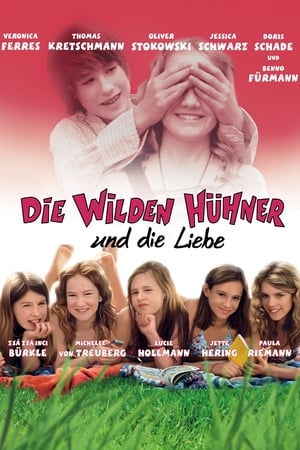 6.3
6.3Wild Chicks in Love(de)
Five teenage girls navigate the twists and turns of their complicated emotional lives, and learn the secrets of the heart through their friendship.
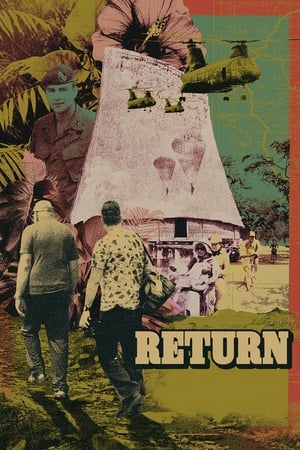 6.8
6.8Return(en)
RETURN tells the story of a retired Green Beret who embarks on a healing journey from Montana to Vietnam. There he retraces his steps, shares his wartime experiences with his son, treats his Post-Traumatic Stress Disorder, and seeks out the mountain tribespeople he once lived with and fought alongside as a Special Forces officer.
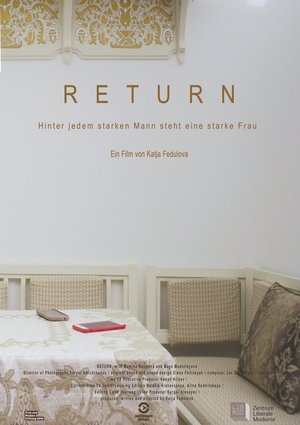 6.5
6.5Return(tt)
"Behind every strong man is a strong woman!", Mumine shouts as her husband is arrested. She has 4 children, she's in her mid-30s, and she's the wife of a Crimean Tatar political prisoner. Muslim Crimean Tatars have been oppressed for a long time. They were deported under Stalin, allowed to return under Gorbachev, and since the occupation of Crimea in 2014 under Putin, they are being persecuted again. "Return" is a portrait of Mumine and Maye, two strong women struggling with the consequences of oppression. Their traditional understanding of their role as women does not stand in the way of their dedication. They possess strength, beauty and dignity. Only in their most intimate moments, they are overwhelmed by desperate helplessness.
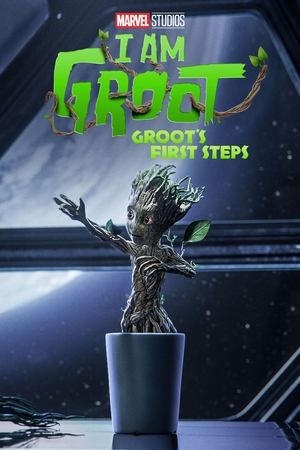 7.0
7.0Groot's First Steps(en)
Following the events of “Guardians of the Galaxy Vol. 1,” Baby Groot is finally ready to try taking his first steps out of his pot—only to learn you have to walk before you can run.
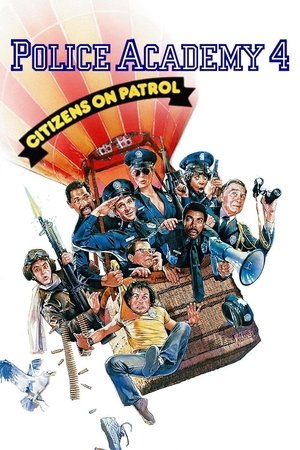 5.5
5.5Police Academy 4: Citizens on Patrol(en)
A new batch of recruits arrives at Police Academy, this time a group of civilian volunteers who have joined Commandant Lassard's new Citizens on Patrol program. Although the community relations project has strong governmental support, a disgusted Captain Harris is determined to see it fail.
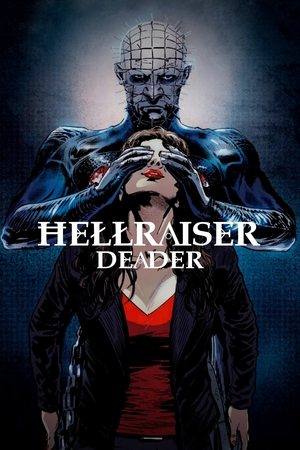 4.6
4.6Hellraiser: Deader(en)
When a tough-as-nails reporter is lead to a mysterious cult and the evil Pinhead, any moment could be her last.
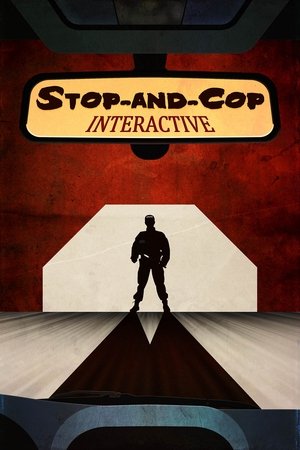 8.5
8.5Stop-and-Cop Interactive(fr)
STOP + Cop = "Stop" or "Slow down" ? Make the right choice. An interactice movie by Ken Arsyn.
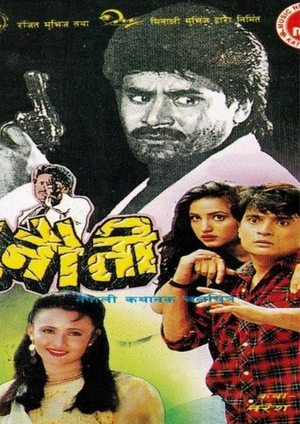 9.4
9.4Chunauti(ne)
Chunauti is an action-packed romantic comedy that tells a story of love, struggle, and justice. Ajaya and his wife Prabha move to Kathmandu, where Ajaya starts working as a teacher. Later, his sister Gita joins them and enrolls in the same college. There, she meets a kind and charming student, but trouble arises when Madhav, a troublesome student, also starts liking her. One day, a fight breaks out in the college, and when Gita tries to stop it, an inspector arrives and brings the situation under control. Angered by this, Madhav and his group cause harm to Prabha and Gita. They also try to escape punishment through legal means. With no strong evidence, Ajaya takes a stand and challenges the court. In the end, he decides to take justice into his own hands, leading to a tragic ending where the inspector, fulfilling his duty, stops Ajaya. Chunauti is a story of love, courage, and sacrifice in the face of injustice.
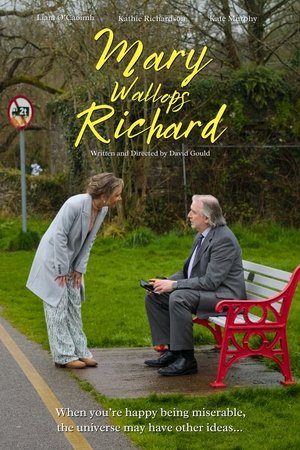 10.0
10.0Mary Wallops Richard(en)
When Richard, a stuck up solicitor, meets Mary, his life is turned upside down.
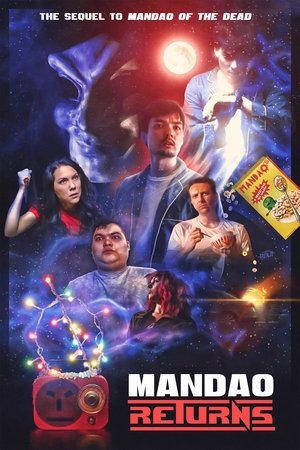 6.5
6.5Mandao Returns(en)
Jay Mandao is not your average hero. He’s an astral projecting time traveler who spends his days hanging with his adult nephew Jackson, crashing on his scheming cousin Andy’s couch, and riding with his cabbie friend Fer. In the days leading up to Christmas, Jay tries to make contact with his deceased father Raymond, but ends up contacting the ghost of B-movie star, Aura Garcia. Aura enlists the gang to astral project back in time to prevent her death. Jay quickly finds out that the more he messes with time, the more he falls down a rabbit hole of cults, conspiracies, and death. This Christmas is gonna kick astral! The sequel to Mandao of the Dead.
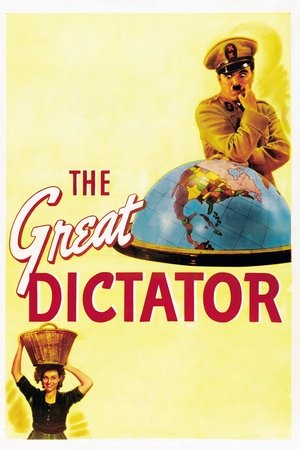 8.3
8.3The Great Dictator(en)
Dictator Adenoid Hynkel tries to expand his empire while a poor Jewish barber tries to avoid persecution from Hynkel's regime.
 8.2
8.2All In(en)
All In was an independent professional wrestling PPV event promoted by Cody Rhodes and The Young Bucks in association with Ring of Honor. The event took place on September 1, 2018, at the Sears Centre Arena in the Chicago suburb of Hoffman Estates, Illinois. While independently produced, the event featured wrestlers from NJPW, ROH, CMLL, IMPACT, AAA, MLW, and the NWA. The event was notable for being the first non-WWE or WCW promoted wrestling event in the United States to sell 10,000 tickets since 1993. The success of the event inspired the formation of All Elite Wrestling in January 2019.
Dschugaswili from Georgia(de)
Forced collectivism, famines, errors and mistakes mark Stalin´s ruthless rise to dictorial power and only increase his madness until he even declares a chicken to be an English spy that should be liquidated.
 5.8
5.8Box(xx)
"I stuck landscape photographs on the faces of a cube and shot them frame-by-frame. It looks like the box is forever revolving, but in truth it only revolves 90 degrees. The trick to this sensation is fundamentally the same as the one used in SPACY. I was aiming at disturbing our awareness of space in the movement from the three-dimensional to a plane and back again." Takashi Ito
 6.5
6.5Return to Horror Hotel(en)
Return to Horror Hotel is an anthology feature with 4 segments. One is about giant a bedbugs, one is about a magical charm that turns girls beautiful, one is about a WWII sailor who hasn't aged and one is about a terrorizing severed hand.
Similar Movies
Yellowtail(en)
Yellowtail is the story of a young Native American cowboy searching for meaning as his chaotic lifestyle begins to wear on him both physically and mentally. To find his purpose the young man has to reflect on his upbringing as a native to become the spiritually connect man he was meant to be.
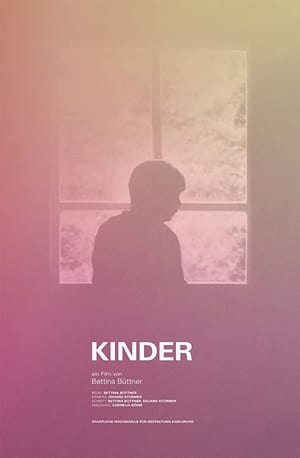 6.0
6.0Kids(de)
In Bettina Büttner’s exquisitely lucid documentary Kinder (Kids), childhood dysfunction, loneliness, and pent-up emotion run wild at an all-boys group home in southern Germany. The children interned here include ten-year-olds Marvin and Tommy. Marvin, fiddling with a mini plastic Lego sword, explains matter-of-factly to the camera, “This is a knife. You use it to cut stomachs open.” Dennis, who is even younger, is seen in a hysteric fit, mimicking some pornographic scene. Boys will be boys, but innocence is disproportionately spare here. Choosing not to dwell on the harsh specifics, Büttner reveals the disconcerting manner in which traumatic episodes can manifest themselves in the mundane — a game of Lego, Hide and Seek, or Truth or Dare. Filmed in lapidary black-and-white, Büttner’s fascinating film sheds light on childhood from the boys’ characteristically disadvantaged perspective — one not yet fully cognizant — leaving much ethically to ponder over.
 7.4
7.4Sans Soleil(fr)
A woman narrates the thoughts of a world traveler, meditations on time and memory expressed in words and images from places as far-flung as Japan, Guinea-Bissau, Iceland, and San Francisco.
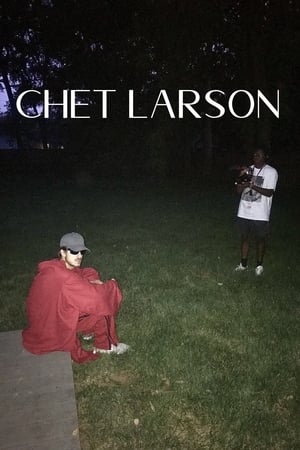 0.0
0.0Chet Larson(en)
A mockumentary following the rise, fall and continued tribulations of former internet personality Chet Larson and those associated with him.
 6.6
6.62 or 3 Things I Know About Him(de)
What would your family reminiscences about dad sound like if he had been an early supporter of Hitler’s, a leader of the notorious SA and the Third Reich’s minister in charge of Slovakia, including its Final Solution? Executed as a war criminal in 1947, Hanns Ludin left behind a grieving widow and six young children, the youngest of whom became a filmmaker. It's a fascinating, maddening, sometimes even humorous look at what the director calls "a typical German story." (Film Forum)
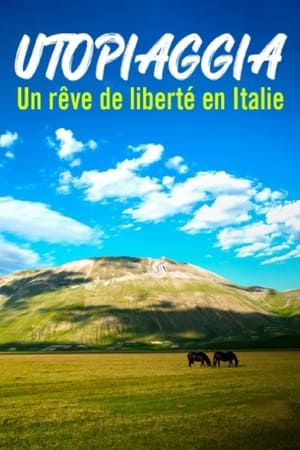 0.0
0.0Utopiaggia - Un rêve de liberté en Italie(fr)
At the beginning of the 1980s, a group of Germans ventured into a social experiment: in the remote hills of Umbria, they founded a self-sufficient community beyond consumerism and bland gainful employment. After 40 years, the rural commune still exists. Not all the plans have come to fruition over the years. How are the dropouts doing today?
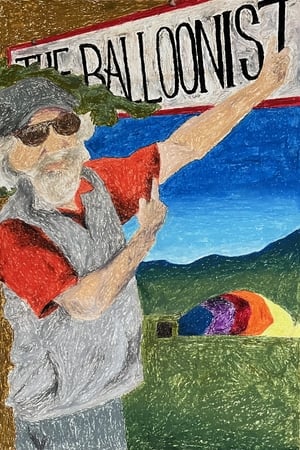 0.0
0.0The Balloonist(en)
Meet Brian Boland—the beloved, eccentric hot air balloonist and artist from the rural Upper Valley of Vermont.
 7.5
7.5Microcosmos(fr)
A documentary of insect life in meadows and ponds, using incredible close-ups, slow motion, and time-lapse photography. It includes bees collecting nectar, ladybugs eating mites, snails mating, spiders wrapping their catch, a scarab beetle relentlessly pushing its ball of dung uphill, endless lines of caterpillars, an underwater spider creating an air bubble to live in, and a mosquito hatching.
The Codes of Gender(en)
Arguing that advertising not only sells things, but also ideas about the world, media scholar Sut Jhally offers a blistering analysis of commercial culture's inability to let go of reactionary gender representations. Jhally's starting point is the breakthrough work of the late sociologist Erving Goffman, whose 1959 book The Presentation of the Self in Everyday Life prefigured the growing field of performance studies. Jhally applies Goffman's analysis of the body in print advertising to hundreds of print ads today, uncovering an astonishing pattern of regressive and destructive gender codes. By looking beyond advertising as a medium that simply sells products, and beyond analyses of gender that tend to focus on either biology or objectification, The Codes of Gender offers important insights into the social construction of masculinity and femininity, the relationship between gender and power, and the everyday performance of cultural norms.
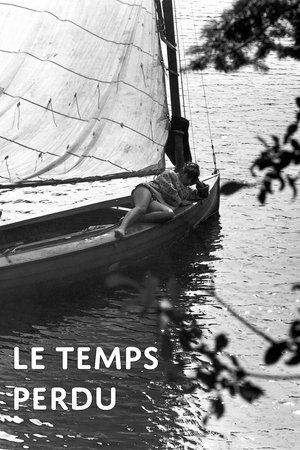 6.1
6.1The End of Summer(fr)
A 16 year old girl recalls the last moments of her summer vacation, spent with friends in the Laurentians north of Montreal. She reminisces about their talks on life, death, love, and God. Shot in direct cinema style, working from a script that left room for the teenagers to improvise and express their own thoughts, the film sought to capture the immediacy of the youths presence their bodies, their language, their environment.
 7.2
7.2Capturing the Friedmans(en)
An Oscar nominated documentary about a middle-class American family who is torn apart when the father Arnold and son Jesse are accused of sexually abusing numerous children. Director Jarecki interviews people from different sides of this tragic story and raises the question of whether they were rightfully tried when they claim they were innocent and there was never any evidence against them.
 7.3
7.3To Be and to Have(fr)
The documentary's title translates as "to be and to have", the two auxiliary verbs in the French language. It is about a primary school in the commune of Saint-Étienne-sur-Usson, Puy-de-Dôme, France, the population of which is just over 200. The school has one small class of mixed ages (from four to twelve years), with a dedicated teacher, Georges Lopez, who shows patience and respect for the children as we follow their story through a single school year.
Little Secret(en)
A group of teenagers who have been selected to participate in a recreational white water rafting trip. All of the kids selected have AIDS or have been infected with the HIV virus. At some point during the trip, all the kids tell their stories and share their feelings about what their lives have been like since being infected with the virus and how they struggle to live normal lives with a hope of a cure in the future.
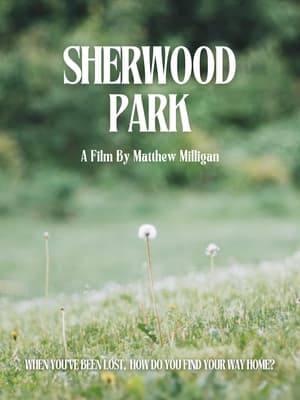 0.0
0.0Sherwood Park(en)
Reclaiming what was once stolen from him, a man journeys back to the place of his childhood nearly 80 years after his world came crashing down.
 8.2
8.2Sieben Mulden und eine Leiche(de)
Thomas Haemmerli is about to celebrate his fortieth birthday when he learns of his mother's death. A further shock follows when he and his brother Erik discover her apartment, which is filthy and full to bursting with junk. It takes the brothers an entire month to clean out the place. Among the chaos, they find films going back to the 1930s, photos and other memorabilia.
 0.0
0.0Memory Books(en)
In Uganda, AIDS-infected mothers have begun writing what they call Memory Books for their children. Aware of the illness, it is a way for the family to come to terms with the inevitable death that it faces. Hopelessness and desperation are confronted through the collaborative effort of remembering and recording, a process that inspires unexpected strength and even solace in the face of death.


